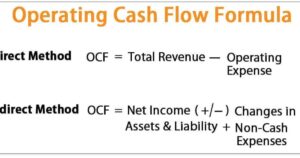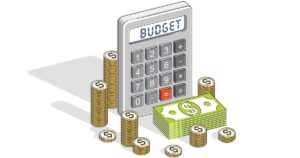The importance of cash flow forecasting cannot be overstated. It involves predicting a company’s future financial position by estimating the inflows and outflows of cash over a specified period.
This process helps businesses prepare for potential financial challenges and opportunities, ensuring that they have enough cash to cover their expenses and invest in growth.
How Does Preparing a Cash Flow Forecast Help a Company?
The preparation of a cash flow forecast aids a company in several crucial ways. It helps management anticipate cash shortages and surpluses, allowing for better financial planning.
By projecting future cash flows, companies can make informed decisions about investments, expenses, and financing options. This foresight helps prevent unexpected financial difficulties and ensures smoother operations.
How Can Cash Flow Forecasts Improve Accuracy?
The accuracy of financial planning is significantly enhanced by cash flow forecasts. It provides a detailed view of expected cash inflows and outflows, allowing companies to compare actual performance against projections.
This comparison helps in identifying discrepancies and making necessary adjustments. By refining forecasting methods over time, businesses can achieve greater precision in their financial predictions.
How Can Cash Flow Forecasts Improve Closing Balance?
The closing balance, or the cash balance at the end of a period, is directly influenced by cash flow forecasts. By predicting future cash flows, companies can manage their cash reserves more effectively.
This proactive approach ensures that businesses have adequate cash on hand to meet obligations and invest in opportunities, thereby improving their overall financial health and stability.
The Role of Cash Flow Forecasting in Budgeting
The integration of cash flow forecasting into budgeting processes is crucial. It provides a realistic framework for setting budgets and allocating resources.
By understanding future cash needs and surpluses, companies can create more accurate budgets that align with their financial goals. This alignment helps in achieving budgetary targets and enhancing financial control.
Improving Financial Decision-Making Through Forecasting
The impact of cash flow forecasting on financial decision-making is profound. It equips decision-makers with valuable insights into future cash availability.
Enabling them to make informed choices about expenditures, investments, and financing. This informed approach reduces the risk of financial missteps and supports strategic planning.
Enhancing Liquidity Management with Forecasting
The management of liquidity is another critical benefit of cash flow forecasting. By predicting cash flow patterns, companies can better manage their liquidity needs. This forecasting helps in ensuring that there is always enough cash available to meet short-term obligations and avoid liquidity crises.
Optimising Cash Reserves with Forecasting Insights
The optimization of cash reserves is facilitated by cash flow forecasting. It helps businesses determine the optimal level of cash reserves needed to handle fluctuations in cash flow.
By maintaining adequate reserves, companies can avoid unnecessary borrowing and take advantage of investment opportunities when they arise.
Mitigating Financial Risks Through Forecasting
The identification and mitigation of financial risks are enhanced by cash flow forecasting. It allows businesses to foresee potential cash shortages and implement strategies to address them.
By anticipating financial challenges, companies can take proactive measures to minimise risks and maintain financial stability.
Strategic Planning Supported by Cash Flow Forecasts
The support of strategic planning through cash flow forecasting is invaluable. It provides a basis for long-term planning by projecting future cash flows and financial positions. This foresight aids in setting strategic goals, planning investments, and evaluating growth opportunities.
The Good Use of Cash Flow Projection
The effective use of cash flow projections extends beyond mere financial planning. It helps businesses track performance, assess financial health, and make data-driven decisions.
By leveraging cash flow projections, companies can align their financial strategies with their operational objectives and market conditions.
Improving Cash Flow with Forecasting Tools
The use of forecasting tools enhances the accuracy and efficiency of cash flow projections. These tools offer advanced features such as scenario analysis and real-time updates, providing a comprehensive view of future cash flows. By utilising these tools, businesses can gain deeper insights and improve their cash flow management.
Cash Flow Forecasting for Small Businesses
For small businesses, cash flow forecasting is particularly crucial. It helps them manage limited resources and navigate financial uncertainties.
By preparing detailed forecasts, small businesses can ensure they have enough cash to cover expenses and invest in growth opportunities, thereby increasing their chances of long-term success.
The Impact of Cash Flow Forecasting on Business Growth
The potential for business growth is significantly impacted by cash flow forecasting. It enables businesses to plan for expansion, manage investments, and capitalise on market opportunities.
By providing a clear financial roadmap, forecasting supports sustainable growth and helps businesses achieve their strategic objectives.
Ensuring Financial Stability with Forecasting
The role of cash flow forecasting in ensuring financial stability cannot be underestimated. It helps businesses maintain a balanced financial position by predicting future cash needs and adjusting strategies accordingly. This stability supports smooth operations and long-term success.
Frequently Asked Questions
Q1. What is the primary purpose of cash flow forecasting?
The primary purpose of cash flow forecasting is to predict future cash inflows and outflows, allowing businesses to manage their finances effectively. It helps in anticipating cash shortages and surpluses, facilitating better financial planning and decision-making.
Q2. How often should a business update its cash flow forecast?
The frequency of updating a cash flow forecast depends on the business’s needs and financial activities. It is recommended to review and update forecasts monthly or quarterly to ensure they reflect current financial conditions and market changes.
Q3. Can cash flow forecasting help in securing funding?
Yes, cash flow forecasting can be instrumental in securing funding.
Q4. What are the common challenges in cash flow forecasting?
Common challenges in cash flow forecasting include inaccurate data, unforeseen expenses, and fluctuating revenues. Businesses can overcome these challenges by using reliable forecasting tools, regularly reviewing and updating forecasts, and maintaining accurate financial records.
Conclusion
The significance of cash flow forecasting in business management is profound. It helps companies anticipate financial challenges, make informed decisions, and ensure financial stability.
By improving accuracy, optimising cash reserves, and supporting strategic planning, cash flow forecasting plays a crucial role in achieving long-term success.
Embracing effective forecasting practices enables businesses to navigate financial uncertainties, seize growth opportunities, and maintain a healthy financial position.

Milton is a seasoned financial strategist who shares expert insights and practical tips on mastering cash flow to help you achieve financial stability and growth.











